I recently spoke at a Harvard Union rally to show support for increased institutional efforts to increase diversity at Harvard.
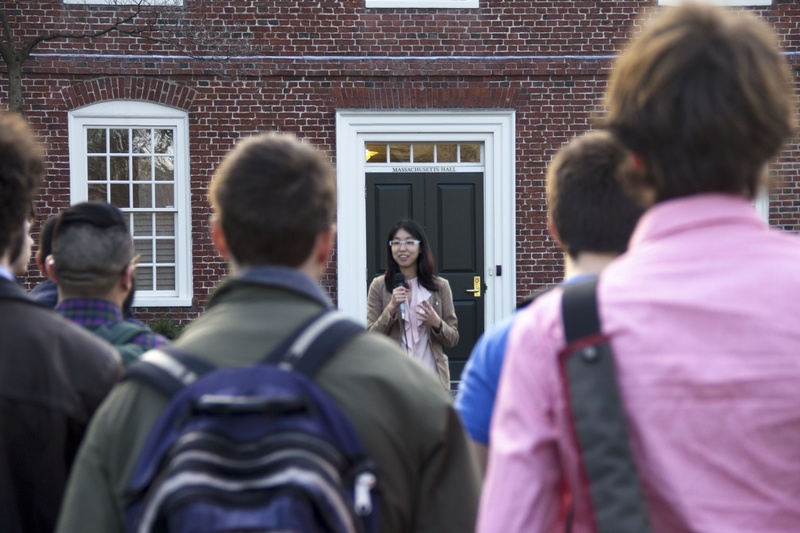
Here is my transcript from the speech.
My name is Jean. I’m a 3rd year PhD student in Bioinformatics and Integrative Genomics here at Harvard. And I am also the founder of a not-for-profit initiative called cuSTEMized that encourages little kids to see themselves in STEM careers by providing personalized STEM-educational and motivational storybooks.
When I first arrived here at Harvard, I was the only girl in my program that year. I think all of us are here because we acknowledge the under-representation of women and minorities in STEM fields and recognize the importance of improving the representation for everything from workplace diversity, gender equality, and global innovation.
The underrepresentation of women in STEM fields result from both the lack of women pursuing these careers, and the higher likelihood they leave the pipeline after entering STEM careers (which is the leaky pipeline we’re talking about here today). But one of the root causes for both of these problems are the implicit biases formed during early childhood that perpetuates the notion of STEM being for dudes. I’ve seen from experience teaching and volunteering with young girls how, as early as grade-school, girls already form unconscious biases that STEM is not for them and are not encouraged to pursue STEM subjects or envision themselves with STEM careers.
cuSTEMized is a line of personalized STEM-educational storybooks targeting girls aged 4 to 8, when they are just starting to learn to read and before they’ve really engendered any of these unconscious biases. Our storybooks describe STEM careers and how they impact the world. What makes our storybooks special is that you are the hero: each book is personalized using a child’s name and appearance. We’ve seen how empowering it is for little girls to read this story about themselves grown up in all these cool STEM careers. We’re currently creating a new storybook and coloring app that is going focus on cutting-edge applied STEM careers. We know that not every parent can explain all these STEM concepts to their kids, so we can collaborating with female scientists to develop the content and their explanations so that kids can not only imagine but they can read about the real deal. And in this way, we also hope to raise visibility of current women in STEM fields.
I think here at Harvard, we are leaders in research and academia. But we also have an obligation to be leaders in terms of implementing progressive policies that support current women in STEM with parental leave and subsidized childcare, and leading outreach efforts that inspire the next generation of people in STEM.
I know that together, as a collective union, we can implement the policies and outreach efforts to achieve an equilibrium in this pipeline.
I think there are lots of things we can do, both as individuals and as institutions, to achieve an equilibrium in this pipeline. Acknowledging the issues and beginning a discussion is the first step. And I’m glad that students such as the leadership of the Harvard Grad Union have been willing to dedicate their time and efforts into organizing such rallies and have given me the opportunity to speak about my efforts, as an individual, in addressing an issue I am impacted by, and to encourage that the same institutional efforts to be put forth.
No matter what issue we tackle, what issue we try to address, there will always be opposition. At the rally, as David Nee, a cis-white-male student, talked about how his “privilege” has “cushioned” him against the issues that minority students face, a heckler passing by shouted “Stop complaining then!”…without even hearing the rest of Nee’s plea for members typically unaffected by issues of discrimination to also stand together in support. On the summary article from the event, one comment paints the plights of an trans-female black student as “pathetic.” Another suggests that increasing diversity would “devalue” his PhD.
But I know that for every heckler, for every jerk and troll, there will be 10X more people who do care, who do believe in the value of diversity, who are not afraid but embraces change…because only through change can we improve…and who will offer their support.
So let’s keep doing things. Let’s keep talking. Let’s keep creating the change that we would like to see. And the next time we encounter a heckler, I hope they will have the audacity to be a part of the discussion.
I recently gave a talk at TEDxJHU on the theme of Instructions Not Included. I think the theme is an apt metaphor for life and for how cuSTEMized came to be.
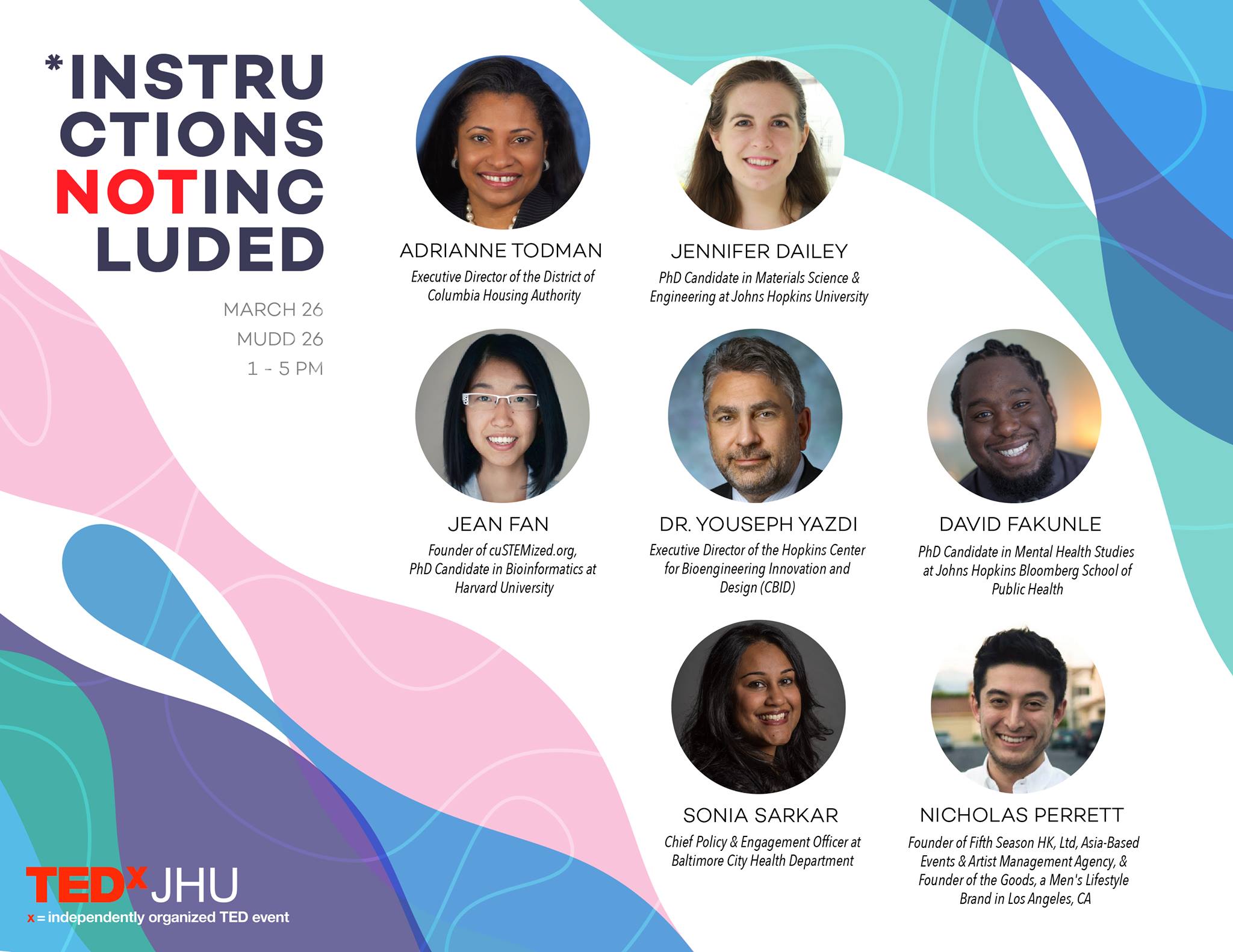
cuSTEMized started because I wanted to give something to the 2nd grade students I was teaching at the time to encourage them in STEM. But I didn’t want any generic message. I wanted a targeted, personalized message that I believe in YOU. I want YOU to continue experimenting, exploring, and learning.
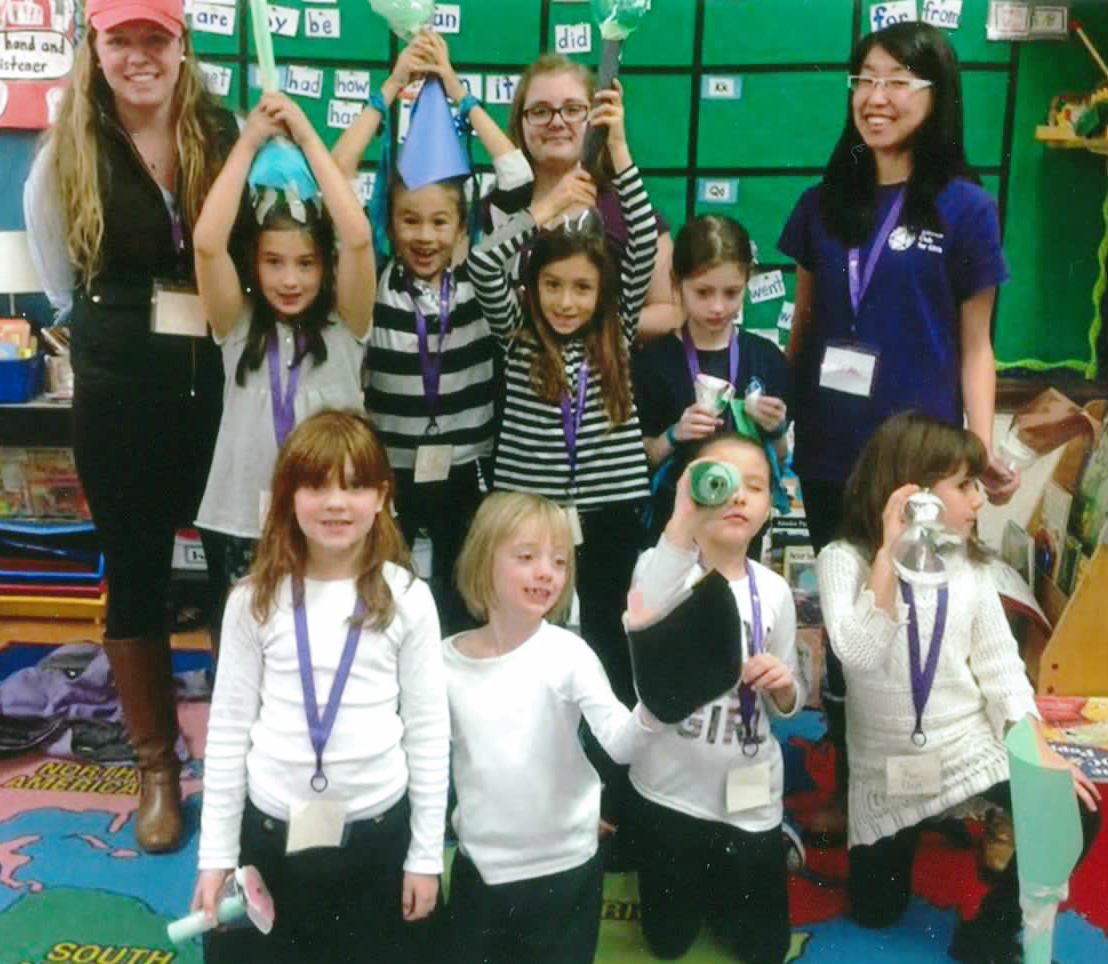
I wanted to make a personalized story for each of them. Using their name. And their appearance. Well, that was the idea. So how were we going to get the graphics? We’ll draw it. So what’s the story going to be? We’ll write it. So how were we going to code this up? We’ll figure it out. No one ever told us how to do this. No one ever gave us permission to do this. At the same time, no one ever told us we couldn’t. We put together what qualifications and skills we had. Where we lacked, we asked for help. Where we couldn’t find good help, we figured things out ourselves.
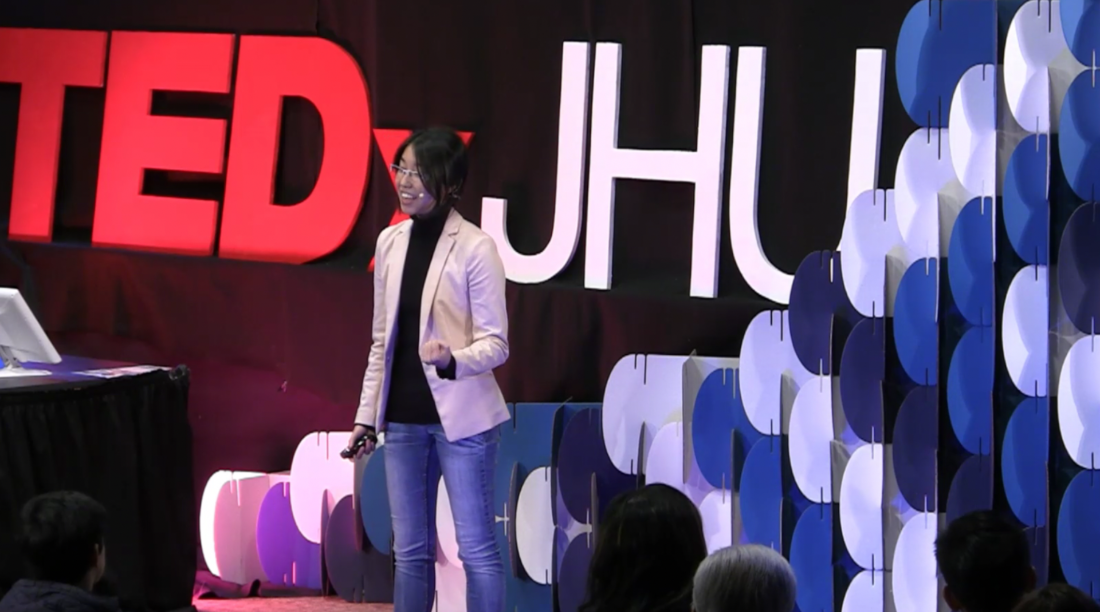
That’s what STEM has taught us: we can always put our heads together and figure things out. That’s why I believe STEM to be so powerful. Not every girl needs to be a scientist, but every girl, every person, should be empowered with the critical thinking skills that STEM teaches us. Because when we empower our girls with both the skills and confidence to create, they will create a brighter future.
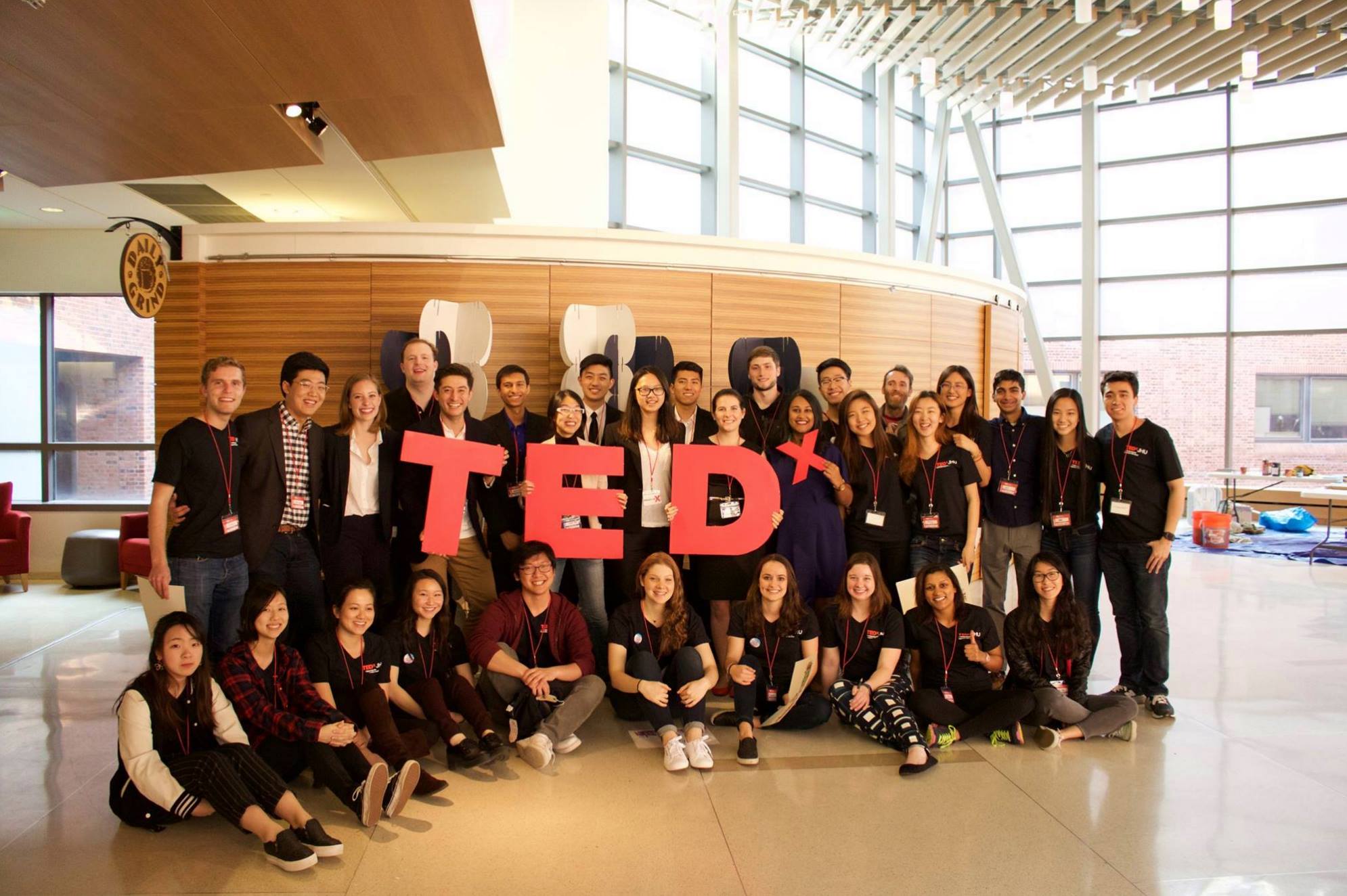
My talk was titled “Do art like a science! Do science like an art” and I discussed how I combined my artistic and scientific skills to make cuSTEMized. My message was simply that we all have a unique set of skills that can be used to create the change that we would like to see. I really hope that we inspire someone, somewhere, to create something.
Congrats again to all the organizing for pulling off a spectacular event. I’ll plan on sharing the video of my talk once it comes out
cuSTEMized recently hosted our first fun-filled hands-on learning event in collaboration with The Innovation Institute, a local after-school STEM enrichment program.
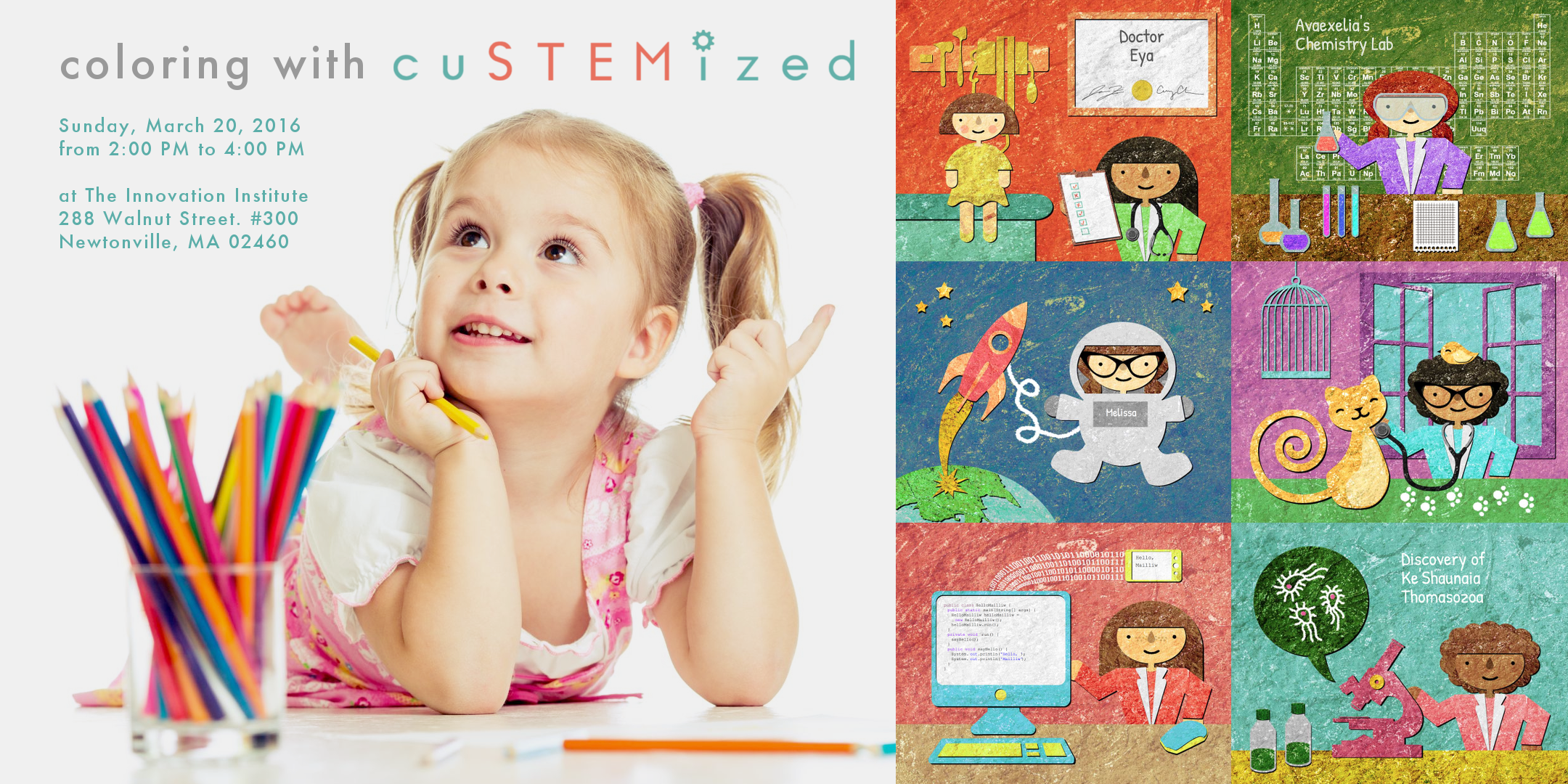
We had some hands-on fun with making rainbows using prisms and flashlights. And of course, had lots of fun coloring! We also heard from 3 STEM guest speakers from Harvard. We learned about computer science from myself and Kamil Slowikowski, geology from Tamara Pico, and epidemiology from Ruoran Li! Check out our Facebook for more photos.
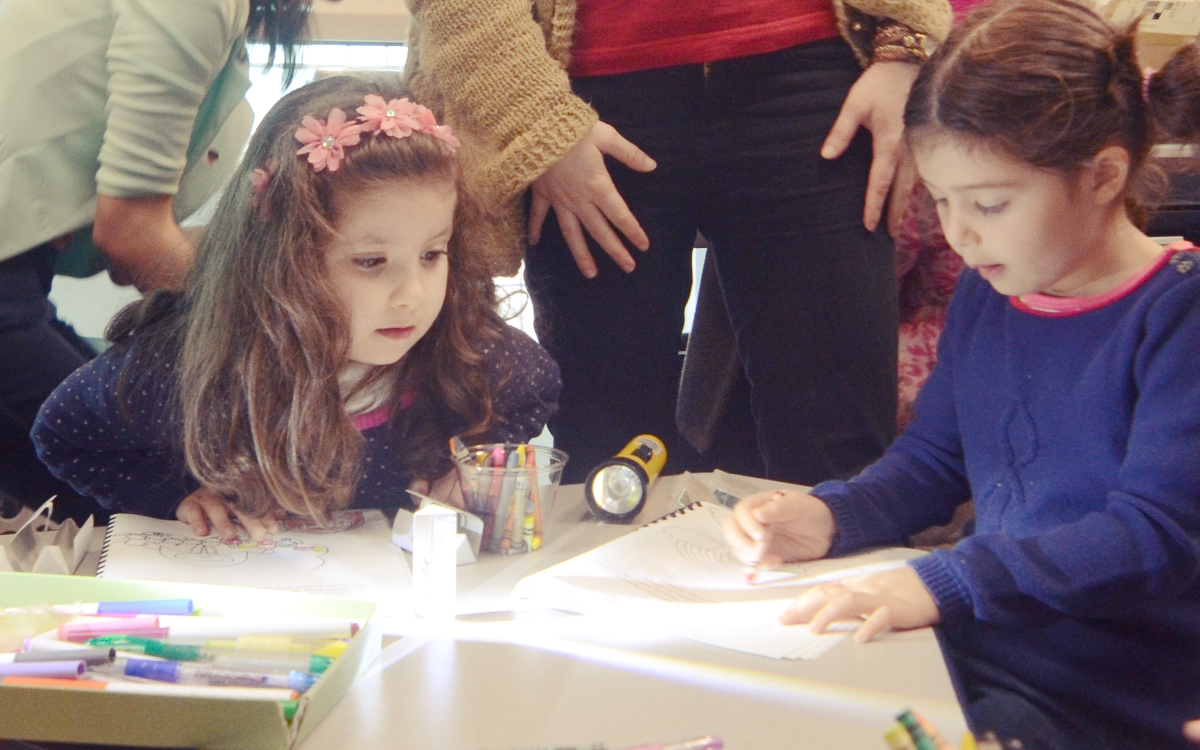
Thanks to our wonderful parents for coming! This would not be possible without you! Thanks to Jennifer Montana and The Innovation Institute for providing their inspiring and creative space. We thank our outreach coordinator, Sayda Zelaya, and graphic designer, Jess Rice, for their hard work.
I hope girls walked away from this event knowing that rainbows are not magic and that they are physical properties and manifestations of light and refraction. Excited to do more fun outreach events in collaboration in the future!
Best,
Jean
I recently gave a talk at a JHU Students and Young Alumni Leadership Symposium.
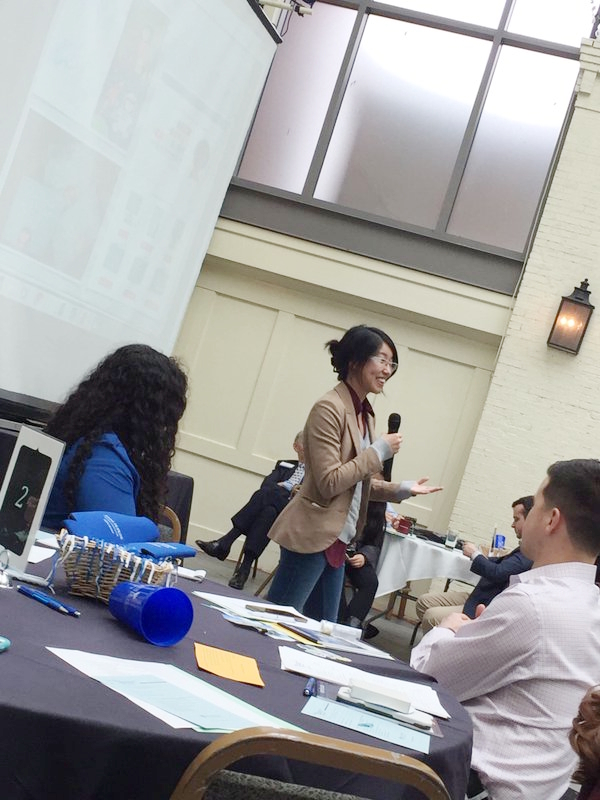
(Intended) transcript of the talk below:
Unlike the two other speakers you’ve heard from this morning, and like you all, I’m still a student! (I’m also female, but more on that later). So, I was in your shoes about 3 years ago. I knew I wanted to go to graduate school to get a PhD. When I was applying, I decided to go big or go home: I’m only going to apply to the top programs. I’m not going to sell myself short. If I don’t get in, I’ll get a job, build up my resume, and try again next year. That’s the thing about going big or going home: you have to prepare for going home. It may not seem like it now, but your most valuable commodity is time. A PhD takes a 5 to 7 year commitment now. Don’t spend it somewhere where you’re not going to be challenged and pushed.
So I apply to the top programs, which in my field like many others, meant Harvard, Yale, Princeton, MIT, Stanford, and Columbia. And surprisingly, I get an interview everything. Schools always ask where else you’ve applied in your application, so I wonder if that had something to do with it. But when I got to the interviews, I thought: oh crap, I’m one of the least qualified candidate. I had no papers, all my extracurriculars were art; nothing to do with science. Some people had biotech companies already. What am I doing here?
But in hindsight, that was probably largely impostor syndrome. Has anyone here heard of imposter syndrome? Yeah, it’s when you think you’re an imposter, and you only got here by mistake. So people are going to find you out and it’s only a matter of time before you’re discovered. It’s funny because I talk to PIs, Nobel laureates, people who are doing amazing work, and they still say (in private): “I don’t know if I’m running my lab well. I don’t know if I’m doing a good job on this grant.” So some of them still have imposter syndrome! I’ve come to accept that maybe imposter syndrome isn’t something you can rationalize away. Or something you grow out of. But it’s something you just acknowledge, and let go. The thoughts and self doubt will come. But just let it go.
Long story short: I get in everywhere but decide to go to Haahvarhd.
Well actually, I did get asked a lot about why I didn’t have papers during interviews. And it was true: I did research throughout undergrad but not all research pans out. That’s just science. But despite failure, I am still pursuing graduate school so I must be a masochist or I must actually like what I’m doing! I think, despite failure, you persist if you believe in what you’re doing. What I believe in is really at the end of the day is really education, and getting people to educate themselves; providing the tools and resources to peak their curiosity and make it easier to learn and discover new things. In my research, I make bioinformatics tools that allow biologists to understand their data. I recently published a Nature methods paper for a bioinformatics tool to help biologists identify cell subpopulations. In my non-profit work, I make resources to help break gender barriers and encourage girls to go learn more about STEM.
[Casual discussion of cuSTEMized and women in STEM that I didn’t write out the transcript for in preparation for the talk]
But anyways, I ended up going to Harvard. I’m in my 3rd year of the PhD. Things I’ve learned: (1) If you figure out what you want to do and do it. No one’s going to give you permission. (2) You’re never going to have the perfect background for any job. If you have the motivation, then you have more than what most people have. If you don’t know how to do something, figure it out! And you can. That’s what you’ve spent 4 years learning at Hopkins: how to figure it out.
You’re all very talented and skilled. You can really do anything. If you don’t know how yet, you can figure it out.
One interesting question I was asked by the audience was from a man who wanted to know how he could help women in STEM. I thought that was such an important question that too often doesn’t get asked so I should just try to integrate the answer more into my talks in the future.
But, the answer is easier said than done: I think people within STEM need to help women and minorities in STEM by learning to see bias and standing up against it. But I don’t think it’s intuitive what exactly is bias, what counts as a micro-aggression, and so forth. Admittedly, unless you are “colored”, perhaps it’s hard to know that being called “colored” is not exactly complementary. Unless you are a woman in computer science, perhaps it’s hard to intuitively understand why it’s insulting when you get asked whether your boyfriend coded your work for you. As a woman, I have a better understanding, on a personal level, why it is weird to get repeatedly asked for your boss’s availability as if you were his secretary. So I’d be much faster to snap “Hey she’s not his secretary!” when I see someone treat a female student like that.
We, as people in STEM, have to stand up for each other. But that in part means learning when to stand up. So who should teach us?
Hello! I’m Jean. I’m the founder, director, and lead software developer here at cuSTEMized. And I’m also a PhD student in bioinformatics at Harvard. I do a lot of coding in my research, for cuSTEMized, and for fun.
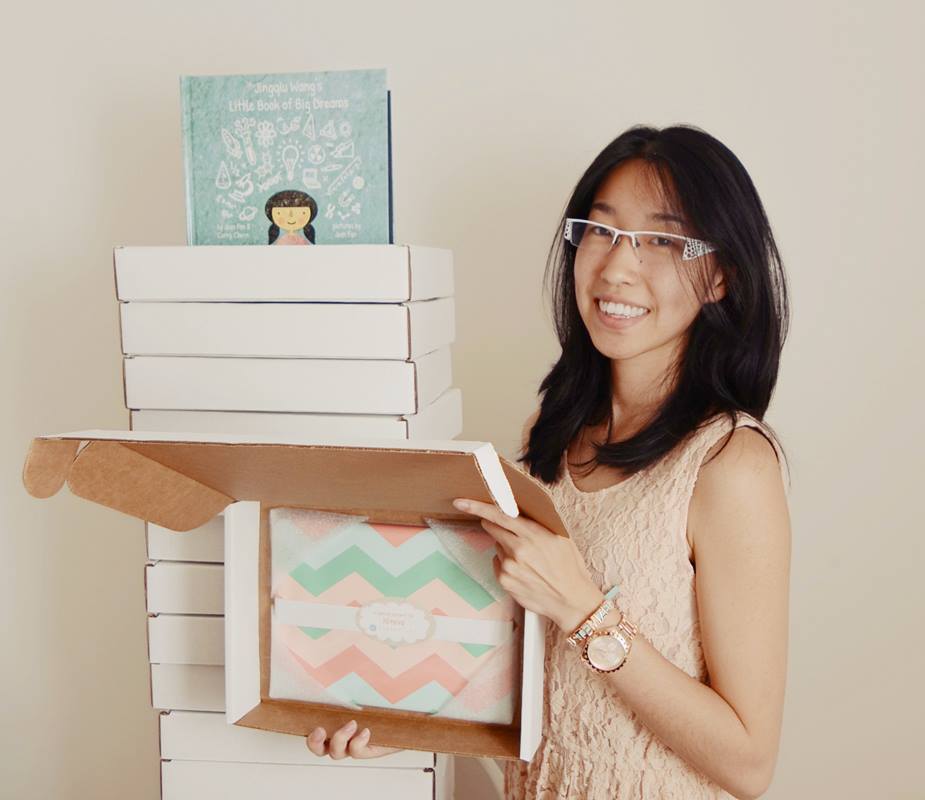
I was first introduced to the idea of code in 8th grade. I thought it was so cool to write some gooble gok language, and have a computer read it, understand it, and execute your wishes. And then you can even share what you’ve written with millions of people and have their computers do the same. It was just really powerful and cool.
So when I was a freshman in high school, I decided to take an introduction to Java programming class. It was my first time trying to learn programming. And I was awful! I had a really hard time understanding basic concepts like variables, objects, encapsulation. What are you talking about? This was also my first introduction to logical thinking and really framing thoughts into loops and if statements. Anyways, long story short: I did really poorly.
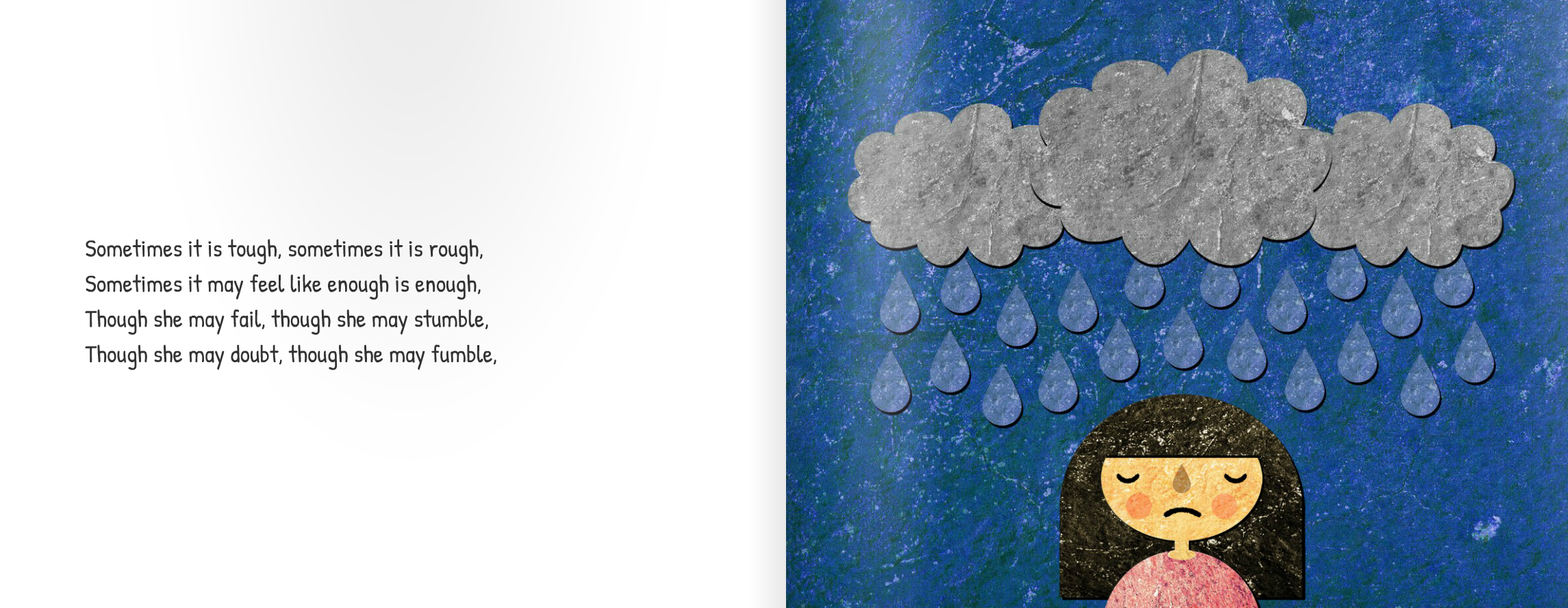
I did so poorly, that at the end of the class, we got back our finals, and the teachers put a sticker on the final if they thought we should advance to the next course. I, as you probably guessed, didn’t get a sticker. And that was really demotivating. I thought: I’m trying my best. And you’re basically telling me, stop trying. Maybe this isn’t for you.
Well after some initial sadness, and some more contemplation, I got really angry. I thought: you know, you’re not going to tell me what I can and can not do. I’m not going to accept that this is not for me. So I took that next course. I still struggled, but a little less than before. Concepts became more familiar. And I just kept going. Over time, I got better. I’m still getting better.
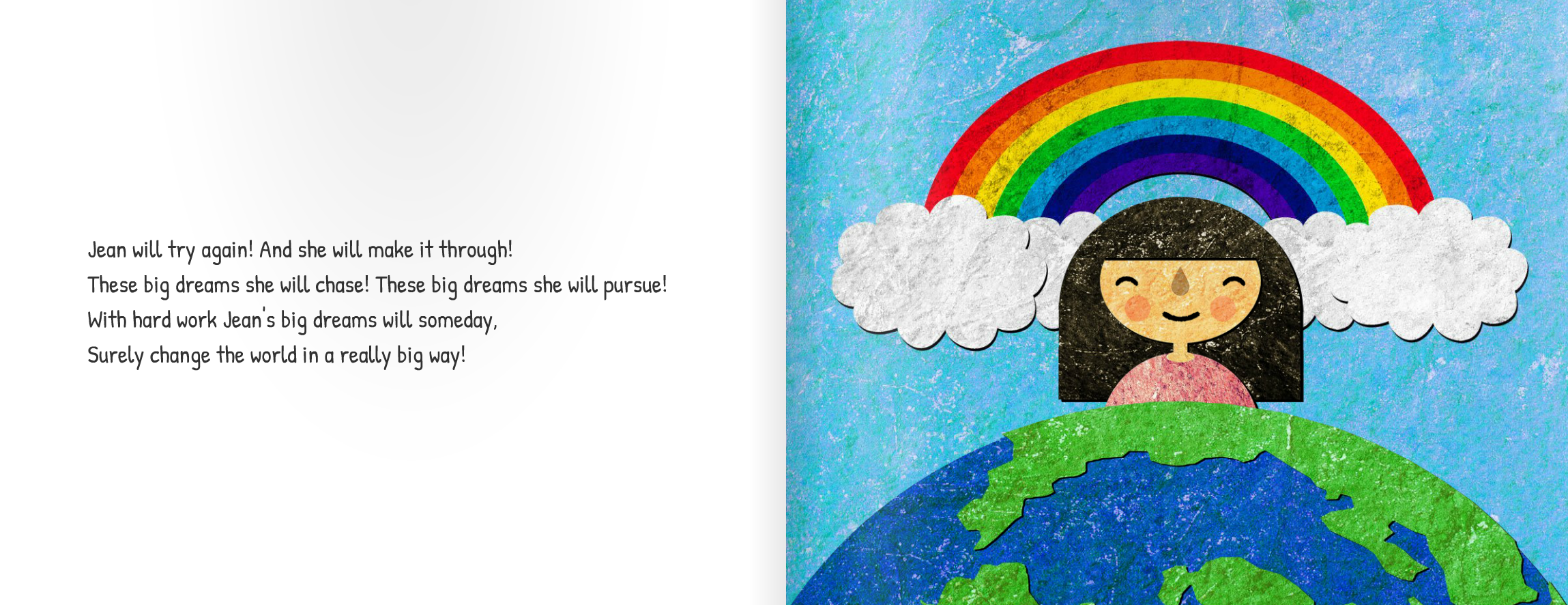
I think, as a society, as parents, as people within STEM, we have to be more encouraging in STEM fields particularly to those more junior who are just starting out, simply because these are really challenging fields! But encouraging doesn’t mean telling your daughter she’s so smart and so talented. Rather, it’s telling her that she can fail. She probably will fail. But she can try again.
“If you’re struggling, it’s not because you’re stupid. It’s because you’re doing something challenging and worthwhile.” – Andrew Salch (my differential equations professor after our class bombed the first exam)
Best,
Jean